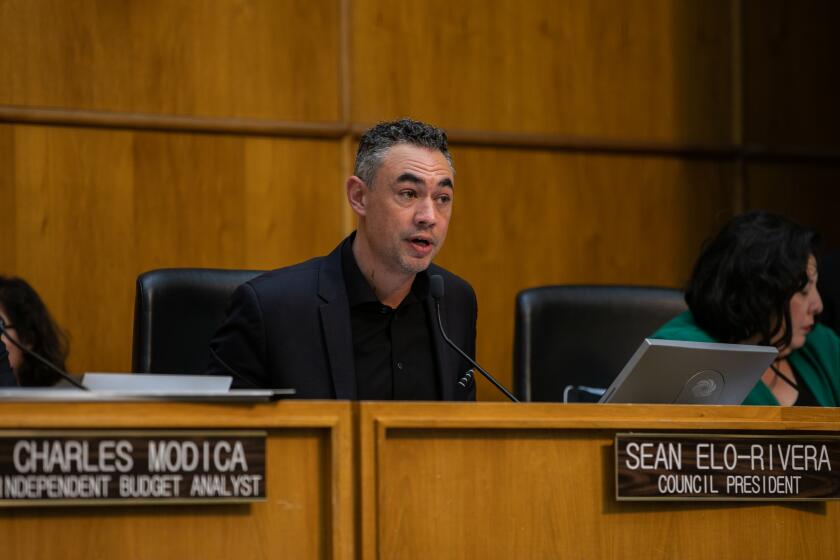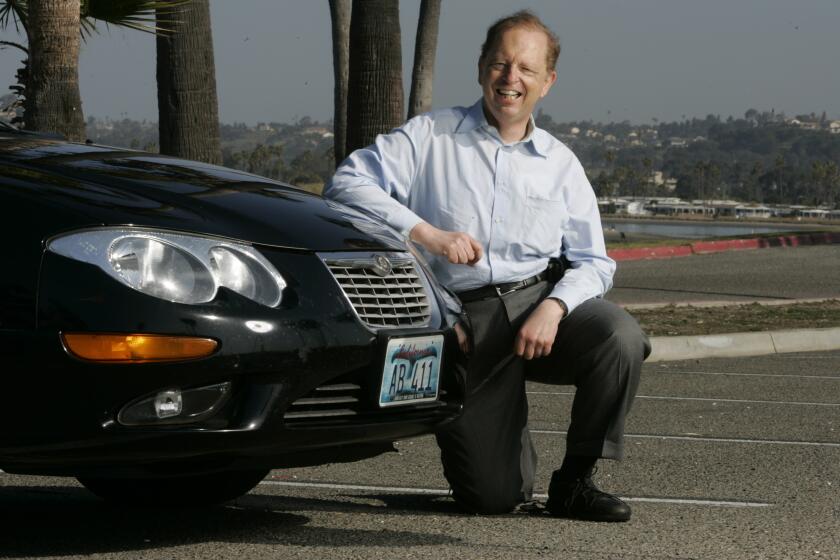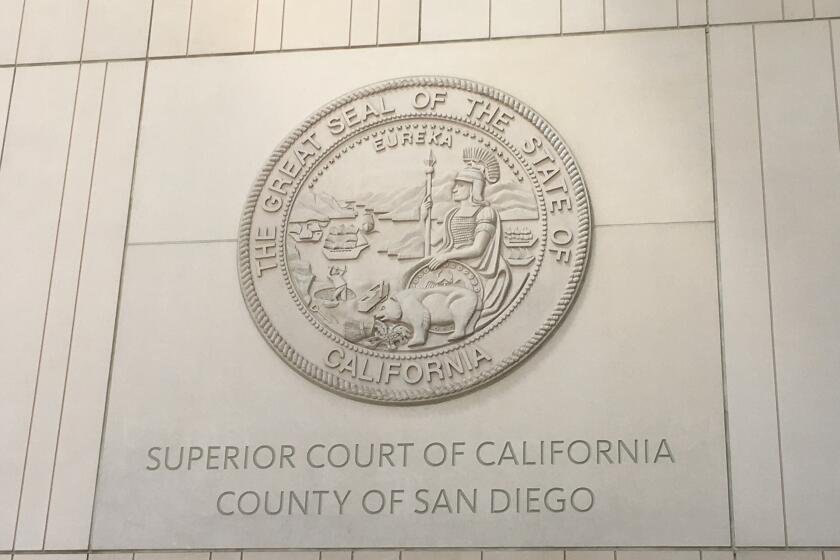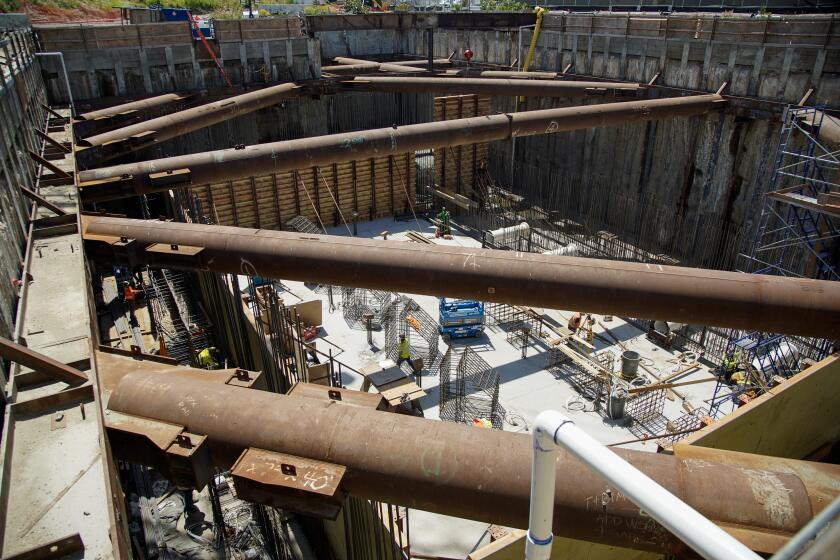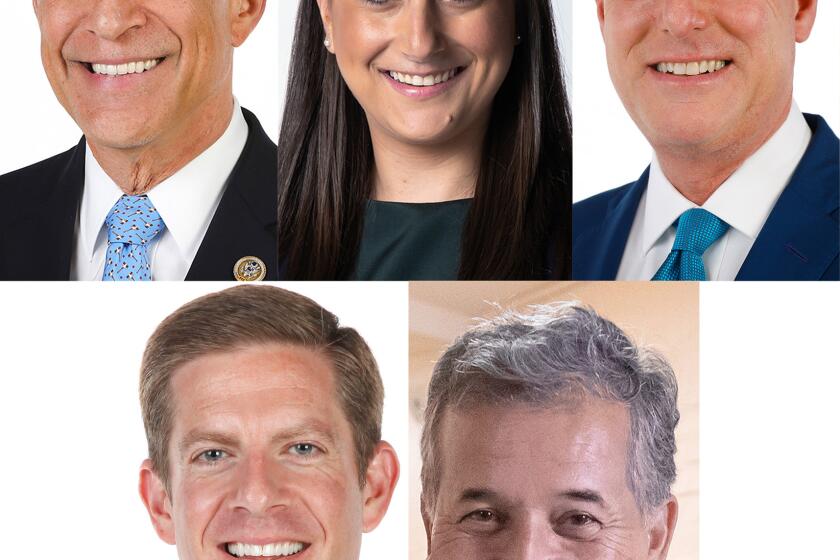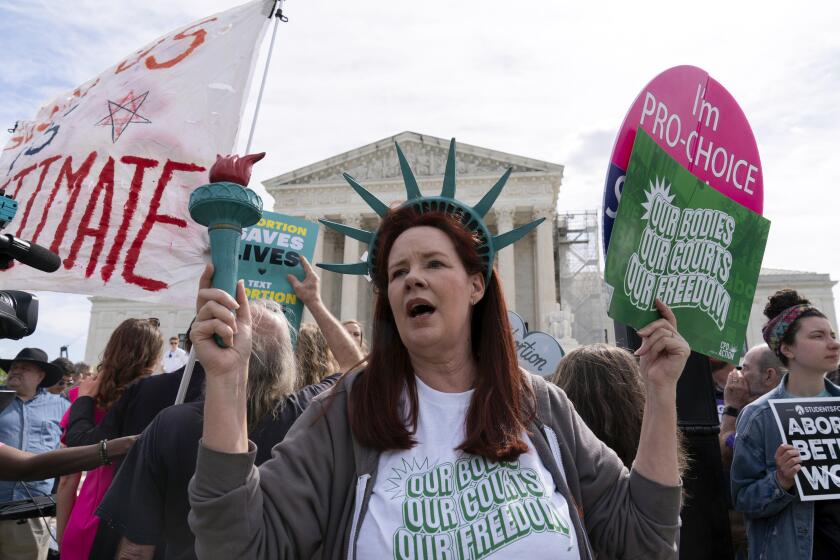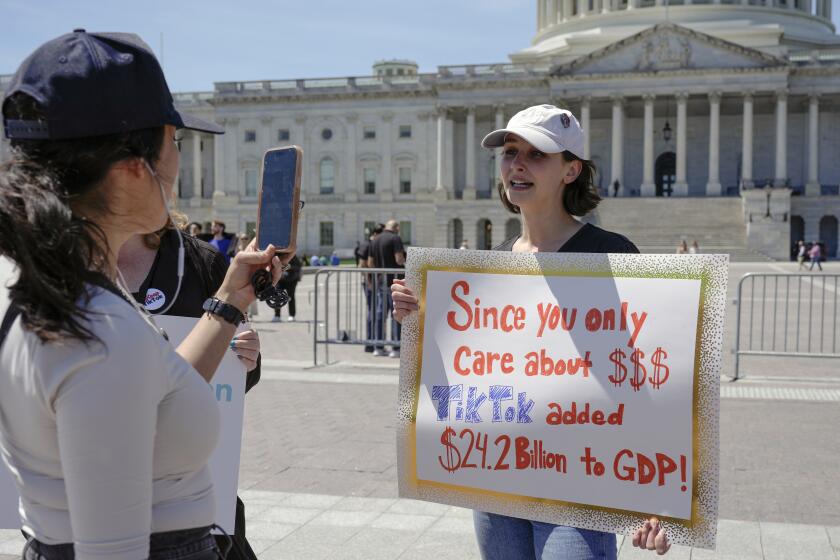Compromise reached on infrastructure ballot measure
San Diego leaders reached a final compromise Tuesday on a June ballot measure that would dedicate an estimated $2.5 to $3 billion in future revenue to updating and replacing the city’s crumbling infrastructure.
The compromise comes after three years of heightened focus at City Hall on San Diego’s decaying roads, sidewalks, fire stations and parks.
Supporters concede the measure, called Rebuild San Diego, won’t solve the problem. But they called it a good first step and something that would ensure city infrastructure won’t be neglected as badly as in recent decades.
Opponents called the measure woefully inadequate and said it might give residents the false impression the city had solved the infrastructure problem.
They also warned it could jeopardize other city priorities, like firefighting and law enforcement, by devoting many millions in future general fund revenue to infrastructure.
Tuesday’s compromise, which the City Council approved in a 7-2 vote, sharply decreased the amount of estimated revenue for infrastructure generated by the proposal from about $5 billion to between $2.5 billion and $3 billion.
The measure, which needs approval by a simple majority of voters on June 7, would devote to infrastructure $1.3 billion in projected pension savings over the next 30 years and somewhere between $1 billion and $1.4 billion in future sales tax growth over the next 25 years.
In addition, it would devote over the next five years half of revenue growth from property taxes, hotel taxes and franchise fees to infrastructure, an amount estimated at $77 million.
The most significant compromise on Tuesday was shrinking from 30 to 25 the number of years that a portion of future sales tax revenue would be devoted to infrastructure. The council also agreed to have the amount adjusted based on future increases in the consumer price index.
Those changes decreased the projected future sales tax revenue devoted to infrastructure from roughly $3 billion to between $1 billion and $1.4 billion, depending on how fast sales tax grows.
Councilman Mark Kersey, who first proposed the measure in December, prefers the $1.4 billion estimate based on projections that sales tax will grow by an average of 4 percent per year over the next 25 years.
The city’s Independent Budget Analyst, Andrea Tevlin, prefers to use a 3.5 percent projected growth rate for sales tax, which lowers the estimated revenue the measure would generate for infrastructure to $1 billion.
Kersey said Tuesday’s vote was great news for the city’s crumbling infrastructure.
“This is the biggest crisis facing the city right now, we recognize it as such and we’re taking action to rectify that,” he said. “Infrastructure is a core function of what we do – it’s not a ‘nice to have’ or a ‘hope to have.’”
Kersey blamed past city leaders and said the measure, which would amend the city charter, would require future leaders to behave responsibly regarding infrastructure.
“Had past generations of our predecessors done the right thing and invested in the city’s foundation the way they should have, we would not be in this position today,” he said. “It’s unfortunate they didn’t, but it’s on us to fix it.”
Councilwoman Marti Emerald agreed, saying that as a journalist she watched many past City Councils make and then break promises about how they would fix neighborhoods.
“That can, so to speak, kept getting kicked down the road further and further, to the point where past councils were looting our pension fund to build their legacy projects,” Emerald said.
Tuesday’s compromises helped the proposal gain bipartisan support, with four Republicans and three Democrats voting in favor. Democrats Todd Gloria and David Alvarez, however, voted against it.
Alvarez said the proposal won’t do nearly enough to solve the city’s infrastructure backlog, which some have estimated at $5 billion.
A recent analysis found the city is facing $4.25 billion in infrastructure needs over the next five years and only has $2.85 billion to cover them, a $1.4 billion gap that Kersey’s measure wouldn’t solve because most of its revenue would be generated further into the future.
“The proposal considered by the City Council today does not solve the $1.4 billion funding gap and will not rebuild San Diego,” said Alvarez. “San Diegans need their parks, streets, sidewalks, libraries and other public projects fixed now – not decades from now.”
Gloria agreed the measure wouldn’t do enough, while also making it harder for the city to find money for other priorities.
“This measure locks up the city’s general fund for decades,” he said. “It would starve non-infrastructure related city services like the Police Department, Fire Department and lifeguards. If public safety is starved for money, what will happen to other services like code compliance, tree trimming and library hours.”
Councilman Scott Sherman, however, stressed that the measure’s requirements would be suspended for a year if two-thirds of the council declares a financial emergency, most likely amid a significant recession.
“To me that gets out of the issue of worrying about tying the hands of other councils,” he said.
Gloria also complained that the measure diverts the city away from a real solution, such as the so-called “megabond” property tax measure he has suggested.
He said that would be a superior approach because it would raise new revenue for infrastructure, instead of diverting existing revenue. And he predicted the city would inevitably have to opt for such a solution.
“Sooner or later, folks will have to bite the bullet,” he said. “The question will be how many potholes are you going to have to drive over before we get there.”
Kersey and other supporters of the measure, including the San Diego Regional Chamber of Commerce, have stressed it could be a precursor to some larger funding mechanism down the road.
Kersey said the city’s Public Works Department isn’t prepared to spend the kind of revenue a megabond would generate, but that his measure would help them slowly build capacity over time.
He also said San Diego is ready for his measure because city officials have spent the last three years analyzing how much infrastructure work is needed with assessments of streets, sidewalks, buildings and parks.
Councilwoman Lorie Zapf said Mayor Kevin Faulconer, another supporter of the measure, has also streamlined the process for approving infrastructure projects, making it likely the revenues from Rebuild San Diego would be spent efficiently.
“This is what the city is here to do,” said Zapf, noting that concerns about infrastructure are the No. 1 complaint she receives from constituents. “It’s our core mission.”
All substantive issues regarding the measure were resolved on Tuesday. But City Attorney Jan Goldsmith’s staff must revise parts of the measure based on those resolutions and return to council later this month to have the measure officially approved for the ballot.
Get Essential San Diego, weekday mornings
Get top headlines from the Union-Tribune in your inbox weekday mornings, including top news, local, sports, business, entertainment and opinion.
You may occasionally receive promotional content from the San Diego Union-Tribune.



